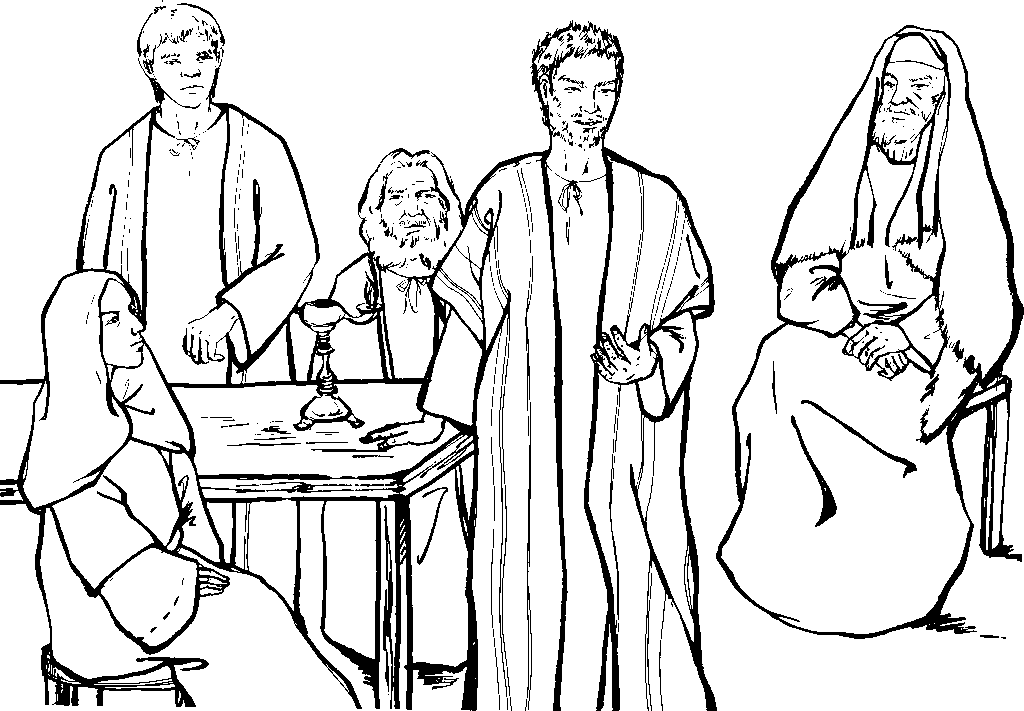Last Day on Death Row: David’s Final Words and Last Instructions
We’ve walked through the final moments of Jesus, Stephen, and Apostle Paul. Now we go back to the Old Testament, to a shepherd who became a king – David. His life was marked by triumph and tragedy, worship and warfare, deep repentance and even deeper love for God. He wrote the longest chapter in the bible and named a man after God’s own heart. When we think of David’s final moments, we’re not looking at a man in a courtroom or a prison. We’re looking at a king on his deathbed, reflecting on a life of victories, sins, songs, and lessons. And like any man nearing the end, he has something to say something worth holding on to. King David’s Final Days The Bible records David’s last moments in 1 Kings 2 and 2 Samuel 23. By now, his body is failing, but his spirit is still strong. He calls for Solomon, the son chosen to sit on the throne, and begins to speak—not with royal ceremony, but with the heart of a father, a warrior, and a servant of God. “When the time drew near for David to die, he gave a charge to Solomon his son…” (1 Kings 2:1) 1. “Be strong, act like a man” “I am about to go the way of all the earth,” he said. “So be strong, act like a man (1 Kings 2:2) This isn’t toxic masculinity – it’s a father telling his son, lead with courage. David knows what lies ahead. Ruling isn’t easy. The weight of leadership, the burden of justice, and the temptation to drift from God are all real. So his first instruction is strength not from pride, but from conviction. There will come a time when you and i have to rise and take our place. David’s last words are the words we all long to hear from our fathers, it is more important in this generation where homosexuality has become the norm. Lesson for Us:There’s a time to be gentle, and a time to stand firm. In your faith, in your calling, and in your life—be strong. Lean into God for your strength (Psalm 18:1). 2. “Observe what the Lord your God requires” and observe what the Lord your God requires: Walk in obedience to him, and keep his decrees and commands, his laws and regulations, as written in the Law of Moses. Do this so that you may prosper in all you do and wherever you go (1 Kings 2:3) David points Solomon not to strategies, but to Scripture. The foundation of a successful life is obedience to God. That includes walking in His ways, keeping His statutes, and staying faithful. David survived, reign and was successful because he had God at the center. Yes he fell into temptation but he always found his way back to God. He lets us know before his death that true success comes from following God’s decrees and his commands. “Do this so that you may prosper in all you do and wherever you go.” (1 Kings 2:3b) Lesson for Us:Success isn’t measured by fame or wealth, but by faithfulness. Align your steps with God’s Word—because true prosperity begins with obedience. 3. David’s Prophetic Last Words In 2 Samuel 23, David offers a poetic and prophetic reflection: “The Spirit of the Lord spoke through me; his word was on my tongue… He who rules over men must be just, ruling in the fear of God.” (2 Samuel 23:2–3) David recognises that his words, songs, and leadership were God-inspired. But he also warns: those who rule must do so in reverence, not recklessness. This is echo by his son, King Solomon in proverbs 25:5. remove wicked officials from the king’s presence, and his throne will be established through righteousness. (Proverbs 25:5) Lesson for Us:Whether you lead a household, a team, or just your own life—lead with fear of the Lord. Seek justice. Speak truth. Honour God in every decision. 4. Unfinished Business Before David dies, he also gives Solomon practical instructions – some concerning matters of justice involving Joab and Shimei (1 Kings 2:5–9). This part can feel uncomfortable. Why does David bring these up? Because unfinished business can grow into future problems. David is not seeking revenge, he is ensuring justice and setting Solomon up with clarity. He doesn’t want his son to inherit unresolved messes. This applies to us even handling over roles, leaderships or projects in real life. He warns Solomon to be careful of certain people who would try to cause problems for him. It does not matter who you are or what you want to, there will always be people seeking to distract and destroy you. Lesson for Us:Before we go, let’s deal with what needs closure. That may mean forgiveness, repentance, or tying up loose ends. Leave peace behind, not confusion. David Rested After giving his final charge, the Bible simply says: “Then David rested with his ancestors and was buried in the City of David.”1 Kings 2:10 David, the warrior who fought giants and armies, found peace. Not because he was perfect, but because he kept returning to God. Just like Apostle Paul, he fought a good fight and kept the faith. Lesson for Us:You won’t always get it right. David didn’t. But it’s not about perfection, it is about repentance and progression. Psalm 51 proves that even when you fall, God can restore. Finish well by staying close to the heart of God. Key Takeaways from David’s Last Day: Final Thoughts David does not just hand over a throne, he prepares his son for whats to come. They are the final notes of a life lived in pursuit of God. He stumbled, yes. But he also worshipped, repented, and loved deeply. If you’ve ever wondered whether God can use a broken life, let David’s story remind you, yes He can. Even in our failures, God sees our heart. And in the end, that’s what matters most. So as we reflect on David’s final day, ask yourself: What would
Last Day on Death Row: David’s Final Words and Last Instructions Read More »




